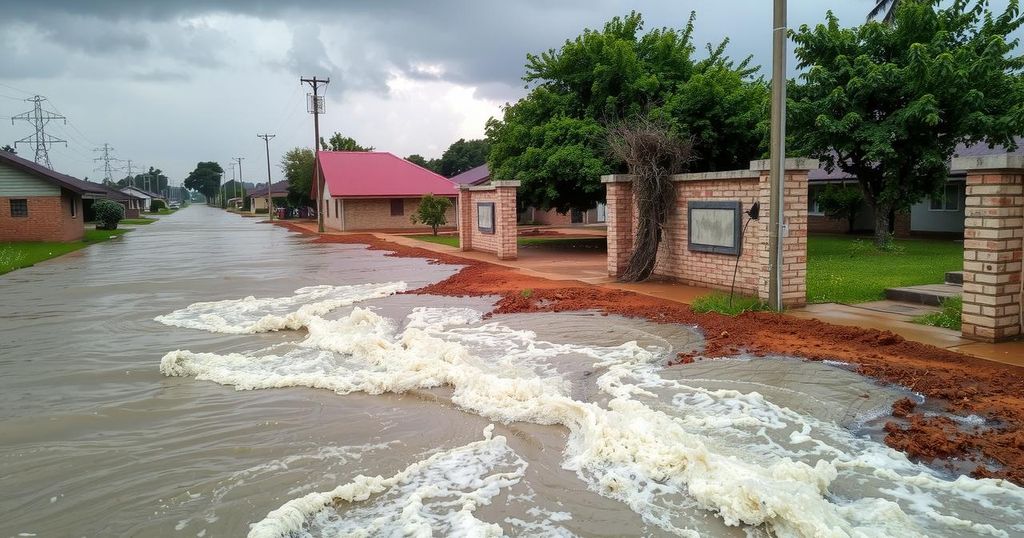Burkina Faso and Togo conducted a learning exchange to improve flood forecasting and early warning systems through insights gained in Sweden and Italy. A delegation of 19 specialists learned about effective flood warning practices, urban resilience strategies, and the integration of science and technology for better disaster risk management. The mission’s outcomes will guide the development of standard operating procedures for enhancing national systems.
Burkina Faso and Togo are intensifying their efforts to improve flood forecasting and early warning systems through a collaborative learning exchange. A delegation of 19 specialists from both nations recently visited Sweden and Italy between October 16 and 23, 2024, to gather insights into effective flood warning practices. In Sweden, the delegates learned from the Swedish Meteorological and Hydrological Institute about the production and dissemination of meteorological forecasts. They also examined urban resilience strategies in Malmo, emphasizing waste management to mitigate flooding risks.
The second segment of the exchange occurred in Italy, where the delegation engaged with stakeholders in Rome and Genoa to understand operational procedures in monitoring hydrometeorological hazards. The visit to Savona highlighted the necessity of integrating science and technology to foster interoperable tools for early action and monitoring. Throughout this exchange, the delegation identified the pivotal role of a robust national framework for flood risk management and communication among institutions as critical components for enhancing early warning systems.
As a result of this insightful mission, Burkina Faso and Togo are set to strengthen their flood warning frameworks by developing standard operating procedures, utilizing the knowledge acquired during their travel. This initiative, supported by organizations such as the Swedish Meteorological and Hydrological Institute, AGRHYMET, and the CIMA Foundation, marks a significant step in bolstering disaster risk management capabilities in both countries.
This endeavor is coordinated by the World Meteorological Organization within the framework of its technical assistance programs for the Hydromet and CREWS Togo projects. National institutions involved include the National Meteorological Agency, the Directorate General of Water Resources, and the National Civil Protection Agency from both Burkina Faso and Togo.
Flood forecasting and early warning systems are critical components for disaster risk management, especially in regions prone to hydrometeorological hazards like Burkina Faso and Togo. The successful implementation of these systems relies on the exchange of knowledge and best practices among countries. Collaborative efforts, such as the recent learning mission to Sweden and Italy, offer valuable insights into enhancing local forecasting services. These efforts are imperative in fostering resilience against floods and mitigating their socio-economic impacts on communities.
In conclusion, the collaborative learning exchange between Burkina Faso and Togo has laid a foundation for strengthening flood forecasting and early warning systems. By learning from international best practices, the participating delegates are poised to implement improvements in their national frameworks. The emphasis on waste management, robust legal structures, and inter-agency communication is particularly crucial for effective flood risk management. Moving forward, the development of standard operating procedures based on this knowledge will further empower these nations to protect their communities from flood hazards.
Original Source: wmo.int






